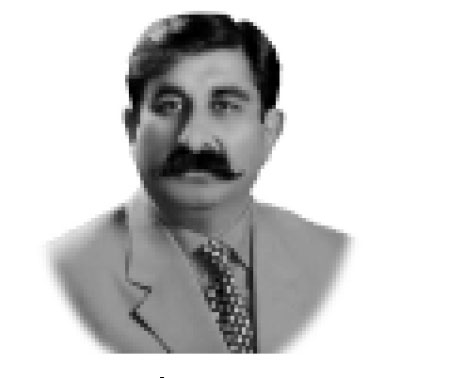Naveed Aman Khan
WHAT is problem of Pakistan and India?
This is understandable question we
come across. The biggest problem of Pakistan is neither poverty, nor corruption, education, even terrorism prima facie. In fact, a majority of Pakistanis find themselves as victims of these, but these are not the prime problems of Pakistan and India. Even India has much of the above problems. The real problem of Pakistan lies in the root level inside the minds of Pakistanis. Inside Pakistan, there is a deep identity crisis. And each Pakistani is unaware in reality as to where assign the identity to. There is the identity of Indian Muslim, portrayed by the Urdu language and the Indo-Mughal heritage, to which perhaps the Punjabis and certainly the Mohajirs can identify themselves with, but Sindhis, Balochis and Pashtuns haven’t yet realized that complete. This was meant as an identity for the Pakistani Muslims to unite themselves, as envisioned by Jinnah. But sadly, the culture as brought out by this identity is more Indian than native to Pakistan. This becomes a problem when Pakistanis try to avoid Indian culture through adopting this identity. Both can’t go together. Then comes the identity of regional cultures, the real culture of Pakistan – the Punjabi, Sindhi, Balochi, Pashtun, Siraiki, Kalash, Gilgiti, Balti, Hazara and Kashmiri cultures. But, in the fear that the diversity would be superseding the uniting artificial Indo-Muslim culture that is imposed, most of the regional culture in Pakistan is suppressed, in fact. A person who speaks Punjabi is seen down upon than one who speaks a bad Urdu. The native cultures of Pakistan are not much encouraged, and are often questioned as complying with other visions of identity which we will see.
Then there is a Pan-Islamic identity, the one that grows from idea of Islamic brotherhood and is nurtured by the global Islamic ideas envisioned by Iqbal. But this has paved the way for an imitation of Persio-Arabic culture and glorifying Central Asian invaders, thinking that Arabs, Persians and Turks are models of Islamic culture, and idolizing them can help Pakistan be “on track”. Recently, there is the silent and violent assertion of Arab Sunni culture as a model for Pakistan by some right wingers. Sadly, this often becomes counter-factual and offers a very bad narrative of history, which was responsible for the Pakistani studies textbook controversy. Extreme right wings in Pakistan try to impose this culture on local population. The whole of terrorism in Pakistan becomes silently encouraged by the imposition of an anti-Indian (thinking wrongly that its anti-Hindu and hence pro-Islamic) narrative of history and facts. The narratives have to be changed. Moreover, this also paves way for a more Sunni-fiction of Pakistan, and Hazaras are the most persecuted and targeted in Pakistan, even worse than Pakistani Hindus. Ahmadis are stereotyped silently by most of the general Sunni population as liars, criminals and wretched. It’s again notable that some of them, may-be due to constant stereotyping, have indulged themselves in such acts.
Then there is the ethnic identity among Pashtuns and Balochs, and to an extent within some nationalist Sindhis and a significant section of Mohajirs. Caste system is also present to the worst extent. The ethnic identity of Pashtuns and Balochs often have the paved way to a Pashtun nationalism in the past and Balochi nationalism which still goes on. Sindhi nationalists have been another pain in the neck of Pakistan. Mohajirs and Siraiki speaking are discriminated. Above all this, the educated and comparatively liberal Pakistanis switch to assimilation of more of western culture, and seem to look down upon all the above identities. Even when the western culture is not assimilated, there is a general thought that whatever western is more modern and fashionable. Even Muhammad Ali Jinnah was noted for giving the Muslims an impression that western culture and outlook is modern and essential, while the local indigenous views are often impractical. English style clothes, are seen as classier. Native culture is considered to be something weird or uncivilized. Taking pride in native cultures happens only when someone asks you about diversity in Pakistan or else, you silently neglect them. We need to know the element that unites all Pakistanis is simply the pro-Kashmir and anti-India identity. People of Pakistan don’t have any issues with Indians. They do have narratives about hatred of Indian governments against Pakistan. Indian stereotype governments are against Muslims irrespective they are Muslims of India or Pakistan. The more often Modi associates India the country with Hindus only. Hope India will appreciate its diversity. Hatred is present in India at its worst. Ethnic nationalism and separatism is suppressed by the diversity recognized by India to much extent. Indian narratives need to be toned down. Stereotypes among communities need to be discussed openly. Extremism then would be toned down automatically.
— The writer is book ambassador, columnist, political analyst and author of several books based in Islamabad.










